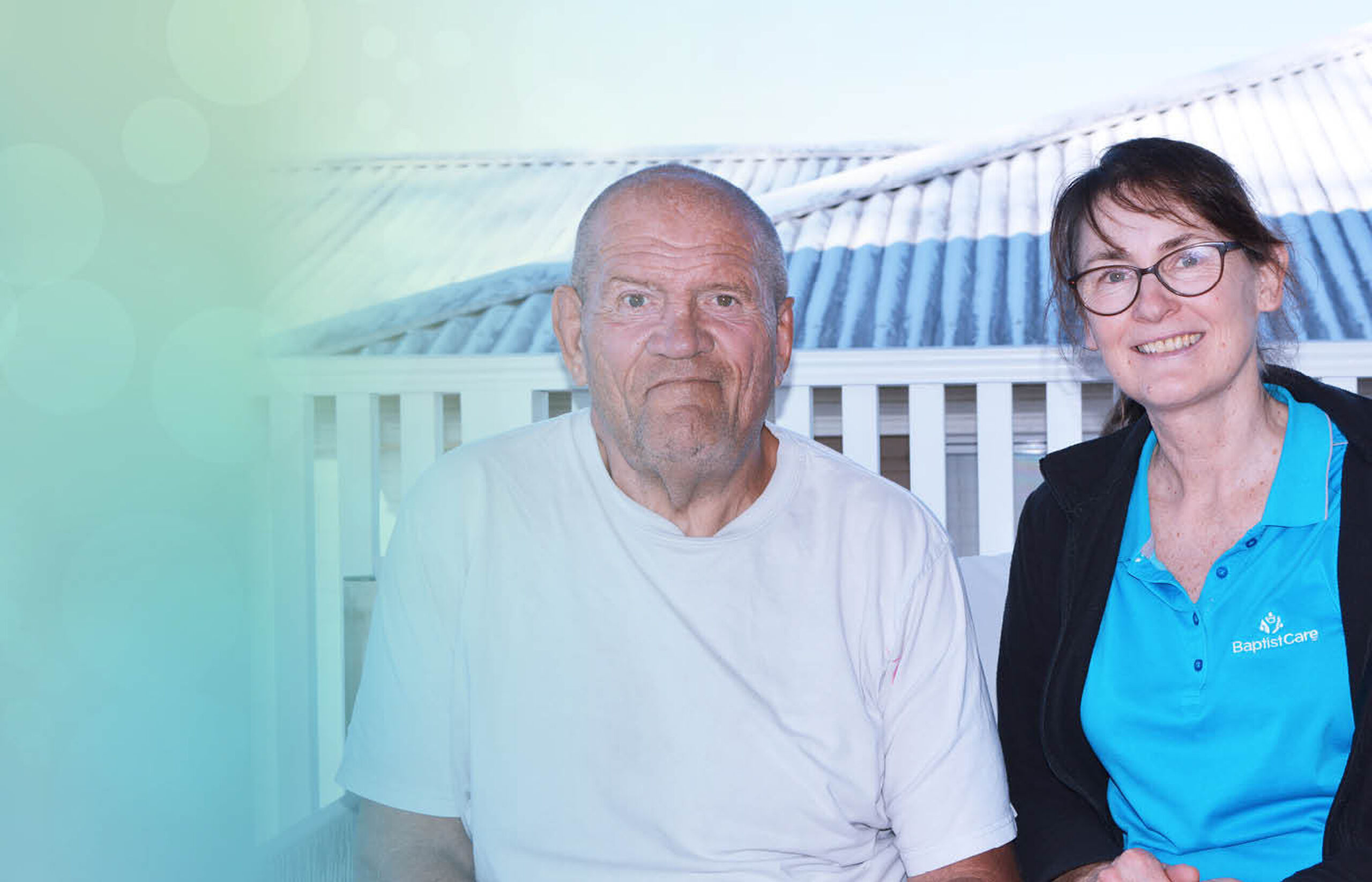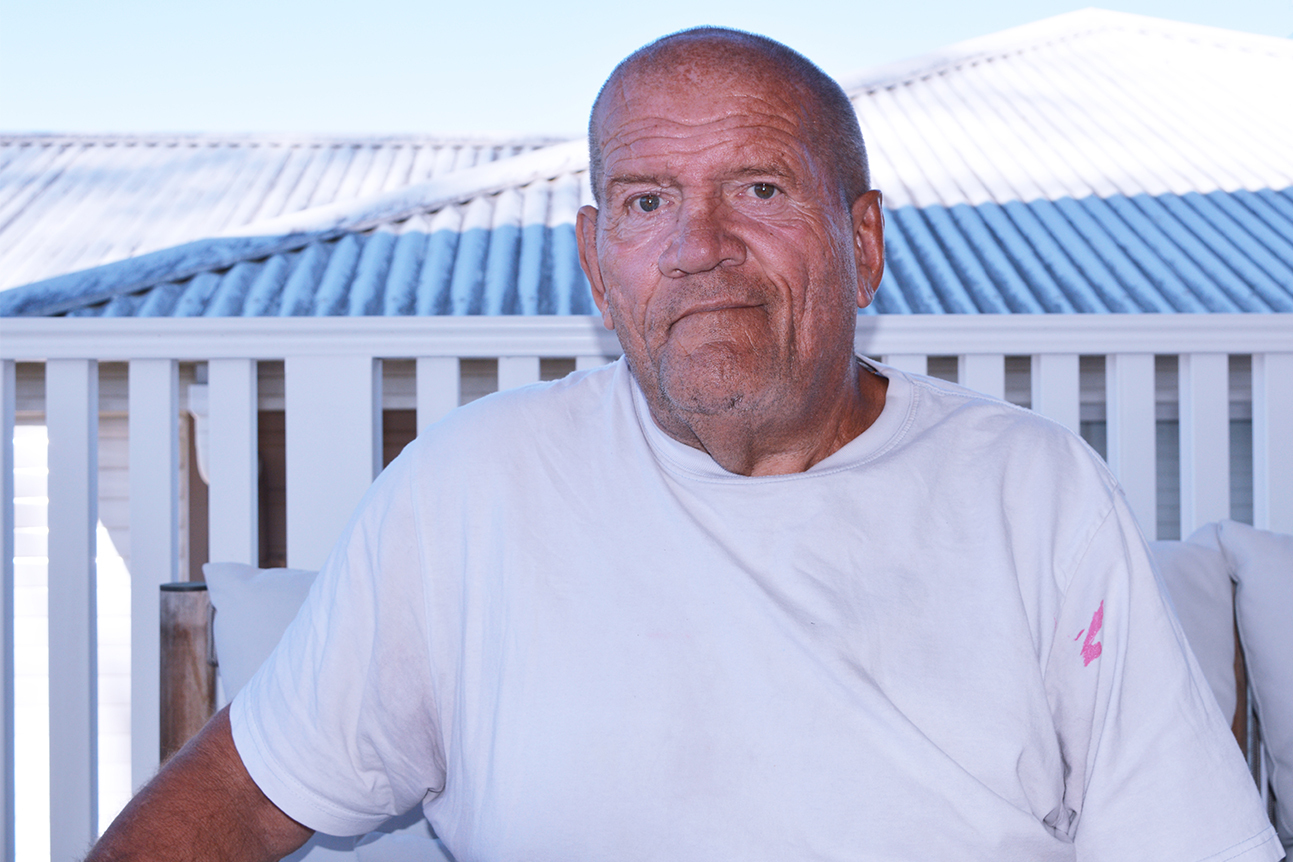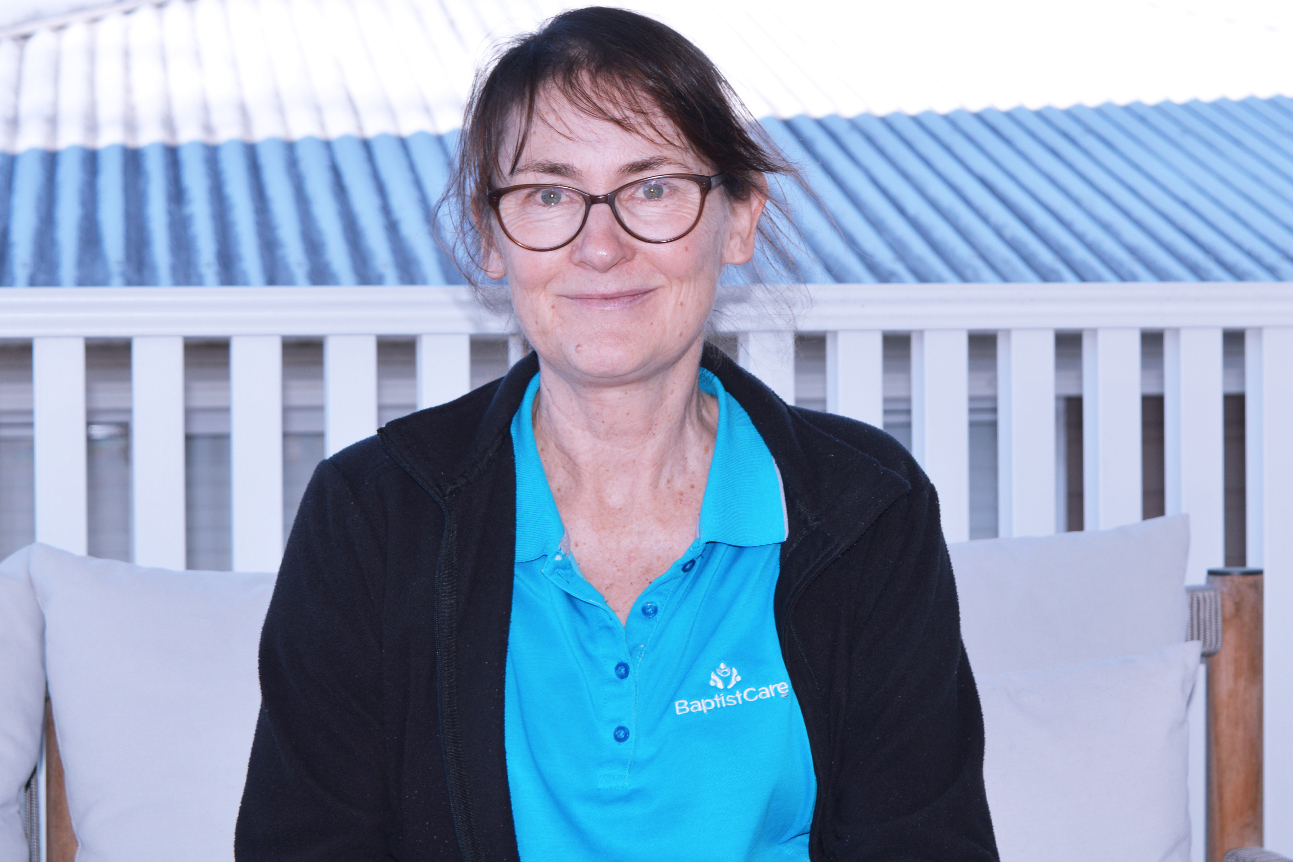How Max is embracing a new and fulfilling life with the help of BaptistCare at home
In 2016, a severe stroke drastically altered the course of Max's life. Since then, he’s worked in partnership with BaptistCare at home to regain his independence and embrace new activities that make life meaningful again.
Scroll to Explore

22 October 2024
News
| Home Care
In 2016, a severe stroke drastically altered the course of Max's life. Since then, he’s worked in partnership with Wendy, his BaptistCare at home care worker, to regain his independence and embrace new activities that make life meaningful – including the discovery of a hidden talent he never knew existed…
Download this article as a PDF.
An accountant by trade, Max was always an adrenaline junkie.
Along with sky diving and bungy jumping, in his younger days he enjoyed white water rafting, speed boating, and swimming with sharks off the coast of South Africa - not to mention being a talented rugby player and golfer.
These days, life has a slightly slower pace, but no less fulfilling.
In 2016, Max suffered a stroke, which was followed by a second just a year later. To say that his life was turned upside down would be an understatement – Max was told he had just a two per cent chance of survival and would never speak again.
Seven years on, he lives a full and active life, defying all the odds.
Speaking to us with a cup of tea in hand and a smile on his face, he says he’s still the same fiercely optimistic person embracing life’s challenges, although he may have retired from jumping out of planes – for now.
We spoke with Max and his BaptistCare at home care worker, Wendy, about his ongoing journey of recovery, the benefits of optimism, and the difference BaptistCare at home has made in his life.
How did you first connect with BaptistCare at home?
“After the stroke, I needed to make some adjustments in my life,” says Max. “Part of that meant seeking support from BaptistCare to continue living independently at home.”
Max’s family are a great source of support, with his son and daughter living with their own families close by, and his other son living over in Perth.
Anne Maree, Max’s wife, has now retired and as Max puts it, “her job is me.”
BaptistCare at home care worker Wendy, came into Max and Anne Maree’s lives six years ago to support them initially with housekeeping. Her role has grown over the years, and she now spends one day each week with Max, providing him with domestic services and transportation to various medical appointments. She also supports Max to be involved in various activities and hobbies.
“We’ll often drive to a beautiful lookout spot here on the Central Coast and have a picnic,” says Max. “We try and get out regularly to do something a bit different like that when we can.”
Wendy added that their weekly routine would not be complete without an afternoon game of Sequence or Triomino. “We do get a bit competitive and there’s certainly no pity wins,” she laughs.
Max says that receiving this kind of care and support has made a world of difference to his wellbeing, meaning he can enjoy living in the familiarity of his own home and keep up with the hobbies and activities that he enjoys.
Unearthing hidden talents
“For me, it’s so important to keep doing meaningful activities that bring joy – I’ve tried a lot of new things since the stroke – not all of them were for me,” says Max. “Just the act of doing something new though is so beneficial for the brain.”
When Wendy suggested that Max try painting lessons with an artist friend of hers, he decided to give it a try.
“I only chose to do it because I trust Wendy’s recommendation,” he reflects. “I never imagined that I’d be any good at it.”
Wendy began taking Max to the nearby art studio for one-on-one painting sessions each week, and it wasn’t long before he was producing spectacular artworks depicting swirling abstract forms, colourful feathers, and carefully etched family portraits.
“There was clearly always a hidden creative talent there,” smiles Wendy. “We simply unearthed it.”

Despite Max’s garage having now been converted into a studio-come-gallery of his beautiful works, Max is adamant that he’s not an artist.
“I just enjoy experimenting with the colours and textures,” he says. “I find it very therapeutic.
“It really doesn’t matter what the hobby is, it’s just important to be doing something you love. I think if you find something you enjoy doing, you should just stick with it and follow your dreams.”
The powerful effects of optimism
According to Max, Wendy has been a great source of encouragement to him throughout his journey with art. It’s this positivity that makes a real difference to him.
“I’ve found that the staff at BaptistCare always bring such a positive attitude, which means a lot to me,” says Max. “I think it’s very easy for those recovering from a stroke – and for those supporting them - to get stuck in a ‘victim’ mindset.”
To counter this, Max tries to stay positive and surround himself with like-minded people.
“My neurosurgeon tells me that parts of the brain can regenerate over time, and I strongly believe that your mindset affects this,” says Max. “I fight to stay positive as a means of recovery – and also as a way of repaying all the help and support I’ve been given over the years.”
A mutually respectful and trusting relationship
“Wendy has been nothing but caring and considerate since the moment she entered our lives,” says Max. “I really look forward to her visits each week.
“I think it’s a real skill for care workers to go into someone’s house and in a way, take some charge over their home. It’s never felt like an intrusion having Wendy here.”
Having known one another for a long time now, Wendy and Max both say they are completely at ease with one another, having developed a deeply respectful and trusting relationship over the years.
For Wendy, she sees her role in Max’s life as more of a ‘back filler’ position. “Max and his family are living so well, I just fill in the gaps,” she says. “We work in partnership, and Max has come such an extraordinary way. He is always pottering about doing gardening, ironing, and other household chores.
“He’ll ask me, ‘how can I help you Wendy?’ I jokingly tell him he has to take fifteen minutes to relax and have a cup of tea.”
What advice would you give to someone considering home care?
“If you’re hesitant, I’d say just go for it and give it a try,” says Max. “Each person is different of course, but I think receiving home care genuinely does help you to feel more comfortable at home.
“For example, my reduced mobility means I am considered a 'falls risk', but staying in a familiar environment where I know exactly where to step means I feel much safer and comfortable. Wendy has helped me enormously with this.”
For Wendy, it’s the personalised care that makes the biggest difference – home care services can be as varied and unique as the people who receive them - and she has seen first-hand what a vast difference this care makes to her clients’ sense of independence and quality of life.

“From the Care Worker’s perspective, we see the person first, and then the need - it’s never a ‘one size fits all.’ We work with the individual to find opportunities for reablement and provide support for them to live as independently as possible at home.”
For Max, his journey of recovery continues, but just like the beautiful artworks that line his garage walls, the future looks bright and full of promise.
Get in touch with BaptistCare at home
We are one of Australia’s largest and most trusted providers of home care, delivering loving, respectful, and reliable care to 9,000 people in their homes across NSW and the ACT.
If you would like to know more about BaptistCare at home services, our friendly team are here to help you.
We’ll listen, guide you through the care and support services we have available, and provide advice based on your particular situation.
Please call 1300 275 227 (Monday to Friday, from 8:00am to 6:00pm) or email us at ask@baptistcare.org.au.
Alternatively, complete the enquiry form below, and one of our helpful team members will be in touch.